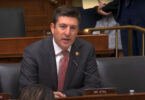The International Organization of Securities Commissions (IOSCO) confirmed it plans to launch a consultation for the regulation of crypto and digital assets in the current quarter (Q2), with a final report by the end of the year. Another working group focuses on DeFi regulation, with its consultation scheduled for Q3 of this year and a final report by year’s end. The timing was announced as part of IOSCO’s 2023/24 work plan.
The UK’s Financial Conduct Authority (FCA) is leading the crypto working group where market integrity and transparency are the first focus, as well as custody and safekeeping.
Turning to DeFi, the US Securities and Exchange Commission (SEC) is spearheading that group, which also targets market integrity. Additionally, it is also exploring investor protection and financial stability risks.
IOSCO previously outlined how in many cases, existing securities regulations might be applied to DeFi. It is also exploring the links between DeFi and stablecoins, crypto trading, lending platforms and the broader financial markets.
Critical DeFi questions
In a report published a year ago, IOSCO questioned whether many of the claimed decentralized DeFi offerings are under centralized control in reality. It will be worth watching whether it defines what amounts to control, with initial protocol developers likely under the spotlight in the early days. Another critical question is which participants will have regulatory obligations where the protocol is considered to be decentralized.
While various regulations have been introduced targeting crypto-assets, such as Europe’s MiCAR, DeFi is often pushed down the road. That’s in part because it’s a trickier area and still evolving. Hence, MiCAR plans to cover it in a future iteration. In contrast, the UK is taking some time to consider regulation and recently launched a consultation. Andrew Griffith, the UK Economic Secretary of the Treasury, stated that DeFi would be included when the UK eventually proposes legislation which will not be this year.
Meanwhile, last year IOSCO and the BIS published regulatory guidelines for systemic stablecoins.






